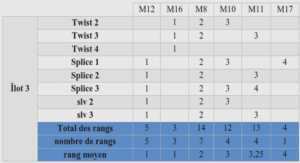Introduction to Organic Agriculture
Organic agriculture shares many techniques used by other sustainable agricultural approaches (e.g. intercropping, crop rotation, mulching, integration of crops and livestock). However, the use of natural inputs (non synthetic), the improvement of soil structure and fertility and the use of a crop rotation plan represent the basic rules that make organic agriculture an unique agricultural management system.
According with the Guidelines of Organically Food Produce of the Codex Alimentarius (2007), an organic production system is designed to:Enhance biological diversity within the whole system;Increase soil biological activity;Maintain long-term soil fertility;Recycle wastes of plant and animal origin in order to return nutrients to the soil, thus minimizing the use of non-renewable resources;Rely on renewable resources in locally organized agricultural systems;Promote the healthy use of soil, water and air as well as minimize all forms of pollution that may result from agricultural practices;Promote the careful processing methods agricultural products in order to maintain the organic integrity and vital qualities of the product at all stages;Become established on any existing farm through a period of conversion, the appropriate length of which is determined by site-specific factors such as the history of the land, and type of crops and livestock to be produced.
In addition, the International Federation of Organic Agriculture Movements (IFOAM), a non-governmental organization internationally networking and promoting organic agriculture, has established guidelines that have been widely adopted by the organic community for organic production and processing.
According with IFOAM (2002), the organic agriculture practices are based on the following principles:
Principle of health: the role of organic agriculture, whether in farming, processing, distribution, or consumption, is to sustain and enhance the health of ecosystems and organisms from the smallest in the soil to human beings. In view of this, it should avoid the use of fertilizers, pesticides, animal drugs and food additives that may have adverse health effects.
Principle of ecology: organic agriculture should be based on living ecological systems and cycles, work with them, emulate them and help sustaining them. Organic management must be adapted to local conditions, ecology, culture and scale. The reduction of inputs by reuse, recycle and the efficient management of materials and energy will contribute to improve environmental quality and will conserve resources.
Principle of fairness: This principle emphasizes that those involved in organic agriculture should conduct human relationships in a manner that ensures fairness at all levels and to all parties ? farmers, workers, processors, distributors, traders and consumers. It also insists that animals should be provided with the conditions and opportunities of life according with their physiology, natural behaviour and well-being. Natural and environmental resources that are used for production and consumption should be managed in a socially and ecologically fair way and should be held in trust for future generations. Fairness requires systems of production, distribution and trade that are open and equitable and account for real environmental and social costs.



